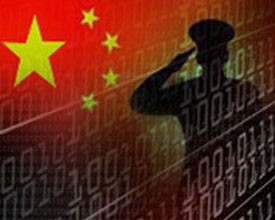As China faces "grave security threats," the Ministry of Defense announced through the State Council Information Office's first published military white paper on Tuesday that they are rushing the cyber force development to maintain the security of the country as well as the international community.
The military white paper, entitled "China's Military Strategy," stated that cyberspace, along with the ocean, outer space and nuclear force, is considered as one of the country's four "critical security domains."
According to the report, the international strategic competition in cyberspace has turned out to be progressively violent and some nations have started establishing cyber military forces.
"Being one of the major victims of hacker attacks, China is confronted with grave security threats to its cyber infrastructure," the report added.
As the Ministry of Defense is tasked to protect China's cyberspace security, the department has carried out plans to preserve it.
"China will expedite the development of a cyber force, and enhance its capabilities of cyberspace situation awareness, cyber defense, support for the country's endeavors in cyberspace and participation in international cyber cooperation, so as to stem major cyber crises, ensure national network and information security, and maintain national security and social stability," the white paper stated.
The cyberspace is one of the country's newest sources of economic and social development. It is also a new domain of national security.
In 2013, China has suffered the biggest cyberattack wherein many Chinese websites encountered denial of service (DDoS).
The notice of the attack was posted on the website of the China Internet Network Information Center (CNNIC), the administrative agency responsible for the country's Internet affairs under the control of the Ministry of Information Industry.
However, the hacker was not identified by the government.



























